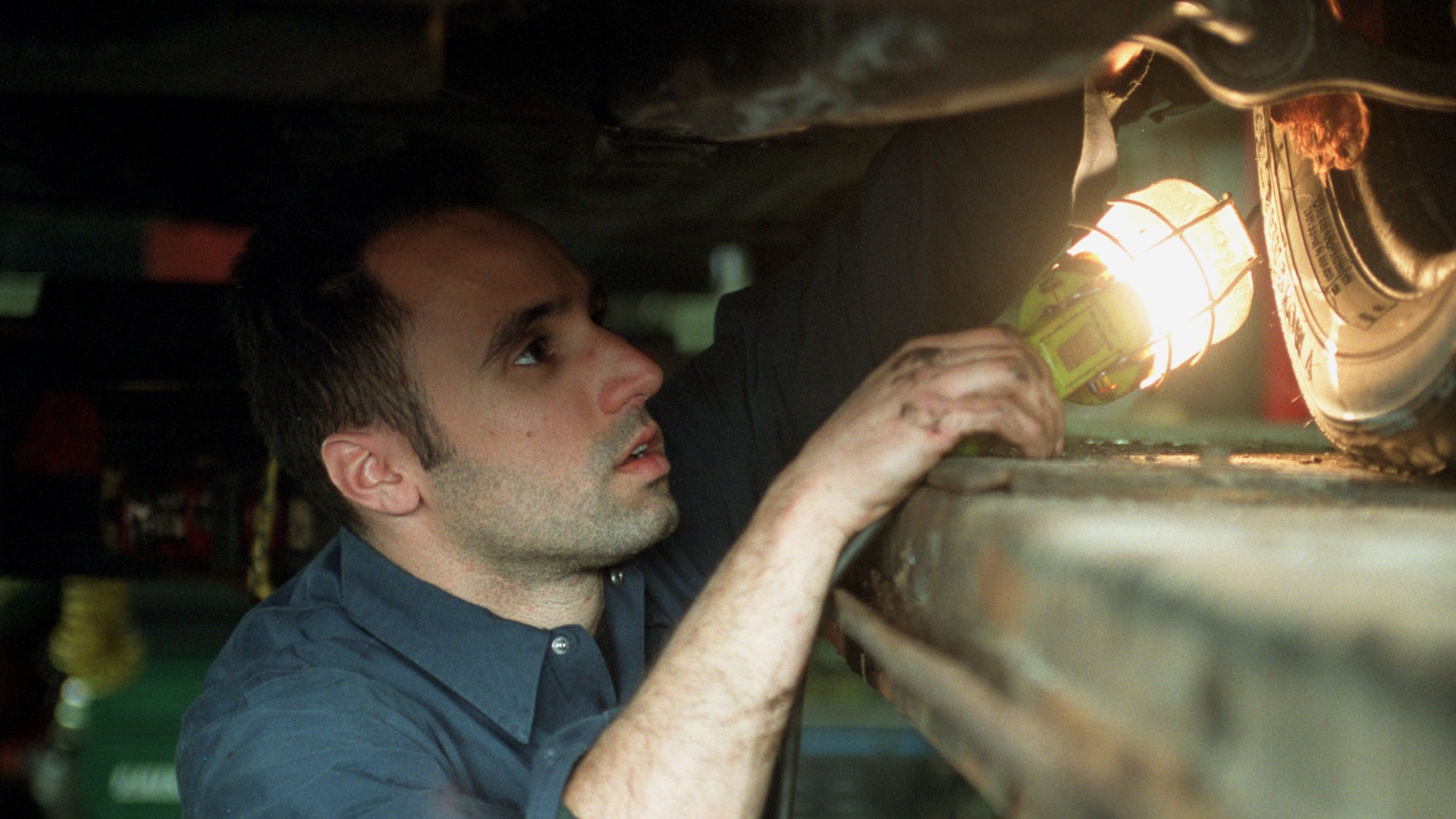

We may earn revenue from the products available on this page and participate in affiliate programs. Learn more ›
Massachusetts-based auto enthusiast forums and Facebook groups are abuzz with concerns about revisions to the state’s vehicle inspection program that will take effect October 1. Although the laws regarding inspections remain unchanged, updates to inspection equipment will include five cameras in every bay to verify that no violations slide by with a sticker.
A Massachusetts Department of Transportation document outlines the upcoming changes. A new vendor, Applus Technologies, won the bid for a $29 million five-year contract to oversee the inspection program. One reason their bid was lowest is that inspection stations, rather than the state, will be expected to foot the $5,710 bill for new computer equipment, which includes the cameras, wireless equipment, robust tablets that can withstand an auto shop environment, two printers, and anti-fraud technology to make it more difficult to produce counterfeit stickers.
Applus Technologies is no stranger to Massachusetts vehicle inspection. The Boston Globe reports that this is the same company that managed emissions testing in the early 2000s that was found to be wildly inaccurate. In 2004, the state ordered Applus to replace all of its faulty equipment within nine months. Many were surprised to learn that Applus had regained the contract, and hope that reliability and accuracy issues do not return.
But the issues that concern most Massachusetts auto enthusiasts have to do with the safety inspection required of all vehicles, mainly ride height and exhausts. State law prohibits deviating from the factory ride height by more than two inches higher or lower. Additionally, federal law prohibits tampering with catalytic converters and requires any car originally equipped with one to have one installed. Many enthusiasts have gotten away with modifications that violate these standards for years thanks to inspectors who don’t look closely enough at exhausts or care if a car is a little bit too low or a truck is too high. But the video surveillance of five cameras in the bay takes away the inspector’s discretion and requires every item to be checked or risk losing their inspection license.
Some members of the MassTuning Facebook group, who are themselves auto inspectors, are going so far as to recommend that enthusiasts get their cars inspected in September, just before the new system goes into effect, regardless of what month it’s actually due. This would at least buy them a year to see if their fears are founded and make necessary changes to their cars before taking them in for inspection. Others are talking about registering their cars in other states to avoid the new inspections, which is illegal but not unheard of.
Massachusetts is one of only 17 states that require safety inspections. There is a case to be made in favor of them, considering some of the neglected unsafe vehicles on the road in states that have no inspections. But although the new system will only enforce existing laws, it may enforce them so stringently that enthusiasts’ modified, but safe, vehicles that have passed for years may no longer get the state’s seal of approval to occupy our roads. I know I’m a bit worried to take our VW Jetta Smyth Ute for inspection next spring. I’d hate to put all the work and money into the project only to have it fail inspection because of its body modifications. Only time will tell whether this is much ado about nothing or a serious worry for Massachusetts car enthusiasts.
UPDATE: One of the technicians I mentioned, Phil Sansossio of Sansossio Auto Couture, told me about additional concerns regarding modifications to intakes and exhausts that I hadn’t touched on. “Cats aren’t the only concern. The law is that emission/evaporator systems can’t be modified. No EGR removal, no cold air intakes, no forced induction mods. I’m guessing that CARB exempt systems are still OK, but no actual statements about that, so as far as anyone knows this state could be tougher than California. And that applies to all vehicles ever. If your 1970 Chevy Chevelle had an EGR valve and it’s missing, you fail. It’s really scary to the antiques. Parts are no longer available, replacement parts didn’t have ports to accept EGR type stuff, engine swaps, whatever not 100% stock really. I get it, I really do, which is why I just mod legally. But inspectors are going to be scared so they will call MAC [Motorist Assistance Center] and then lack of knowledge will come into play, and that’s what’s scary. As far as being more thorough, I’m all for it.”
